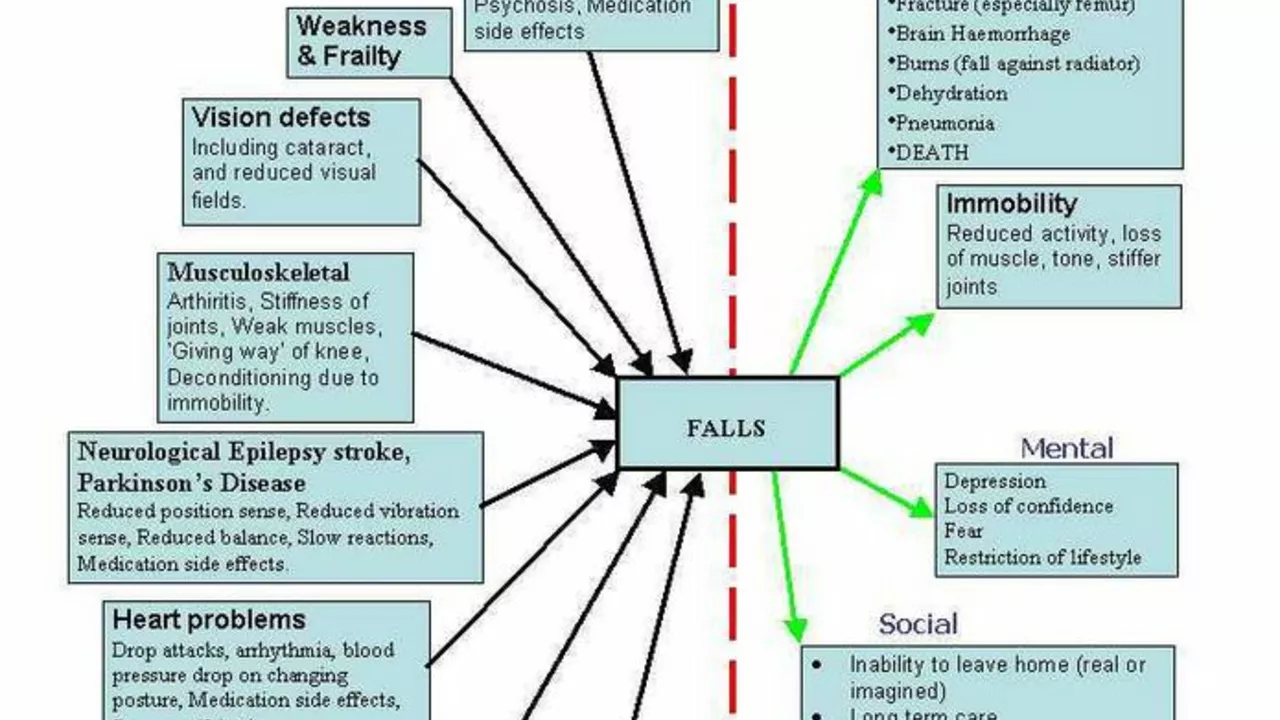Amitriptyline and Sexual Dysfunction: What You Should Know

Understanding Amitriptyline
Amitriptyline is a commonly used medication that falls within the class of drugs known as tricyclic antidepressants. It's primarily used for the treatment of mental/mood disorders such as depression. It works by affecting the balance of certain natural chemicals in the brain, such as serotonin, which help improve mood, relieve anxiety and tension, and boost your energy levels. However, like all medications, Amitriptyline comes with potential side effects, one of which is sexual dysfunction.
Exploring Sexual Dysfunction
Sexual dysfunction is a common problem experienced by both men and women, and it can manifest in various ways. For men, it could mean experiencing difficulty with getting or maintaining an erection, premature or delayed ejaculation, or a decreased interest in sexual activity. For women, sexual dysfunction could mean problems with sexual arousal, difficulty achieving orgasm, or pain during sexual intercourse. It's important to note that these problems can be caused by a multitude of factors, including psychological issues, physical health problems, and medications such as Amitriptyline.
Amitriptyline and Sexual Dysfunction: The Connection
For some people, taking Amitriptyline can lead to sexual dysfunction. This is due to how the drug works. It affects the balance of chemicals in the brain, and these chemicals also play a crucial role in sexual response. While Amitriptyline can help improve mood and relieve anxiety, it can also interfere with sexual desire and performance. This can lead to a variety of sexual problems, from decreased libido to difficulties with sexual performance.
How Common is Sexual Dysfunction with Amitriptyline?
The occurrence of sexual dysfunction due to Amitriptyline is not rare. However, it's hard to determine the exact incidence as it largely depends on individual factors such as dosage, duration of usage, individual's physical health, and other concurrent medications. It's also important to note that sexual dysfunction can be a sensitive topic, and many people may not feel comfortable discussing it, even with their healthcare provider.
Managing Sexual Dysfunction Caused by Amitriptyline
Dealing with sexual dysfunction caused by Amitriptyline can be challenging. However, there are several strategies that can help. First, it's crucial to have open communication with your healthcare provider about your symptoms. They can provide guidance and potentially adjust your medication or dosage. It's also beneficial to maintain a healthy lifestyle, with regular exercise and a balanced diet, as these can help improve sexual function. In some cases, psychotherapy or counseling may also be beneficial.
Other Medications and Sexual Dysfunction
Amitriptyline is not the only medication that can cause sexual dysfunction. Many other types of antidepressants, as well as certain blood pressure medications, antihistamines, and even some types of antacids, can also lead to sexual problems. Therefore, if you're experiencing sexual dysfunction, it's important to consider all of the medications you're taking and discuss them with your healthcare provider.
When to Seek Medical Help
It's important to seek medical help if you're experiencing persistent sexual dysfunction, especially if it's causing distress or affecting your quality of life. Your healthcare provider can help determine if Amitriptyline or another medication is the cause, and can provide treatment options. Remember, it's crucial to have open and honest communication about this issue. Sexual health is an important aspect of overall health and well-being, and it's something that deserves medical attention.
Final Thoughts: Balancing Mental Health and Sexual Health
Managing both mental health and sexual health can be a delicate balancing act, but it's entirely possible with the right support and guidance. If you're taking Amitriptyline and experiencing sexual dysfunction, don't hesitate to seek help. Remember, there's no need to sacrifice one aspect of your health for the other. With the right treatment plan, you can manage your depression and maintain a satisfying sexual life.




Jennifer Brenko
June 27, 2023 AT 23:45It is noteworthy that the prevalence of sexual dysfunction associated with Amitriptyline appears to be disproportionately reported in Western clinical trials, suggesting a possible bias in the data collection methodology. One must consider the geopolitical influences that shape pharmaceutical research agendas, often to the detriment of the average citizen. Consequently, any recommendation to discontinue or adjust dosage should be weighed against the broader context of national health policies.
Harold Godínez
July 2, 2023 AT 02:45Hey folks, just a quick heads‑up: if you notice any changes in libido or performance while on Amitriptyline, jot them down and bring them up at your next appointment. Clear communication can really help your doc fine‑tune the dose. Also, double‑check that you’re not mixing it with other meds that might amplify those side effects.
Sunil Kamle
July 6, 2023 AT 05:45Ah, the ever‑enigmatic Amitriptyline, a veritable Swiss‑army knife of pharmacology-if the Swiss had intended it for bedroom improvisation, perhaps. One must first acknowledge, with the utmost sincerity, that the drug’s primary objective is to modulate serotonergic pathways, a noble pursuit indeed. Yet, as the ancient sages of biochemistry would sarcastically remark, "When you tug at one neurotransmitter, the rest of the orchestra can’t help but stumble."
Consequently, the emergence of diminished libido or erectile difficulties becomes an inevitable footnote in the grand narrative of neurochemical equilibrium. The dosage, of course, plays a starring role; a higher milligram count is akin to increasing the volume on a delicate concerto, drowning out the subtle harmonies of sexual desire. Duration of therapy adds another layer- prolonged exposure often breeds tolerance, not just to the antidepressant effect but also to the sympathetic overcompensation that may mask sexual arousal.
Clinicians, ever the optimistic conductors, might suggest lifestyle interventions-exercise, balanced diet, mindfulness-as ancillary movements to restore the lost rhythm. Some even propose a strategic switch to a different class of antidepressant, a maneuver reminiscent of changing conductors mid‑performance. In the meantime, patients are encouraged to maintain open dialogues with their healthcare providers, for silence only ensures that the discord persists.
Finally, let us not forget the psychosocial dimension: anxiety about performance can itself become a self‑fulfilling prophecy, a vicious cycle that the drug inadvertently fuels. Thus, while Amitriptyline remains a valuable tool in the psychiatrist’s arsenal, its sexual side‑effects demand both clinical vigilance and a dash of patient‑centered humility.
Michael Weber
July 10, 2023 AT 08:45In the grand tapestry of human experience, the intersection of mental health and sexual vitality forms a poignant motif. When a pharmacologic agent like Amitrimyline alters neurotransmission, it does not merely adjust mood but reverberates through the very essence of desire. It is a reminder that the body, in its intricate design, resists compartmentalization. Thus, we must approach treatment not as a mechanistic prescription, but as an ethical dialogue with one's own embodiment.
Blake Marshall
July 14, 2023 AT 11:45Yo u cant even handle a simple TCA side effect lol.
Shana Shapiro '19
July 18, 2023 AT 14:45Reading about Amitriptyline's impact on intimacy truly struck a chord within my heart. It is heartbreaking to imagine someone battling depression while also feeling a void in their most personal connections. Please remember you are not alone; reaching out for support can illuminate even the darkest of nights.
Jillian Bell
July 22, 2023 AT 17:45One cannot ignore the shadowy alliances between big pharma and governmental agencies that push medications like Amitriptyline without disclosing the full scope of sexual side effects. The intentional suppression of such data serves a larger agenda of control over our bodies. Stay vigilant, question the narratives, and demand transparency.
Lindsey Bollig
July 26, 2023 AT 20:45Hey everyone! If you’re dealing with the side effects of Amitriptyline, try keeping a symptom diary and share it with your doctor-that tiny step can lead to big changes. Also, regular exercise and a balanced diet have been shown to boost overall sexual health. You’ve got this, and there are plenty of resources out there to help you navigate.
Daniel Buchanan
July 30, 2023 AT 23:45It’s important to approach this topic with inclusivity, recognizing that sexual health concerns affect a diverse range of individuals. Discussing medication side effects openly with healthcare providers fosters a collaborative environment where adjustments can be made safely. Together, we can ensure both mental well‑being and sexual vitality are addressed respectfully.